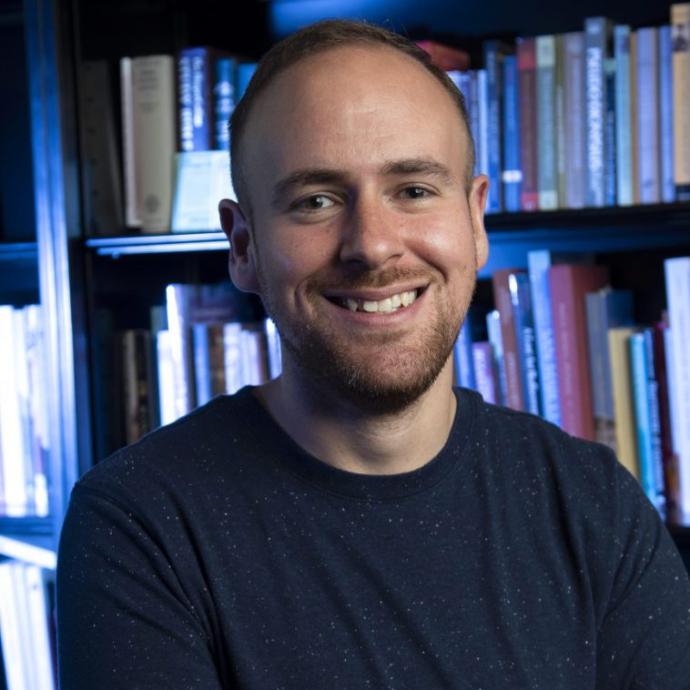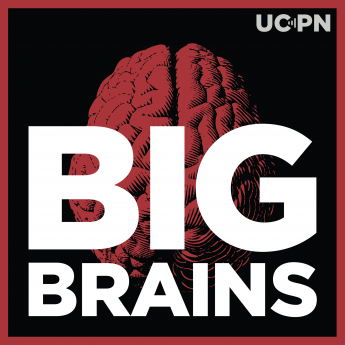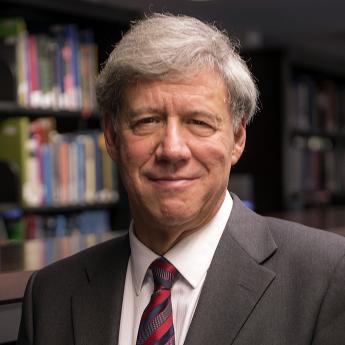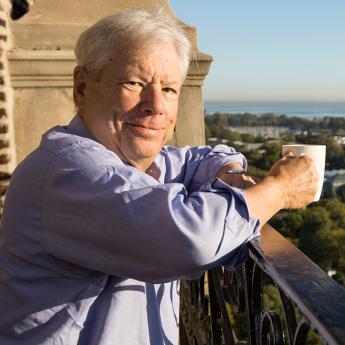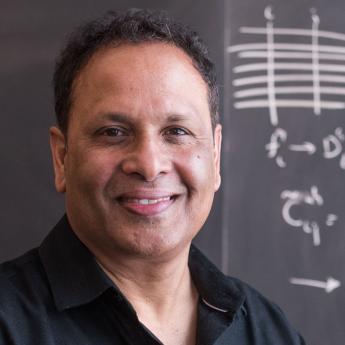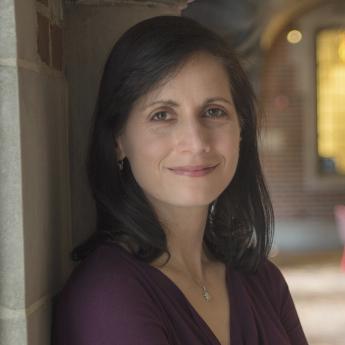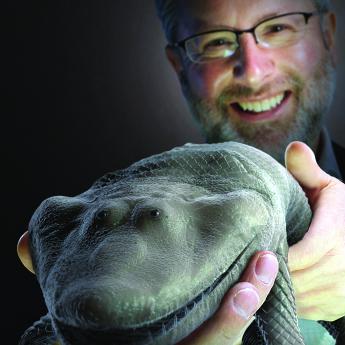Show Notes
We often think our debates around sexuality and gender are a modern phenomenon. Some people argue that identities like trans and non-binary have only existed recently. But could the evidence for queer and gender-nonconforming lives actually stretch back centuries?
In a recent book entitled Byzantine Intersectionality, Prof. Roland Betancourt of the University of California-Irvine uncovers an overlooked history from the Byzantine era. His work shows how surprisingly modern medieval conversations about sex and gender were—or, as he puts it, how medieval our modern conversations seem.
As extremist groups on the alt-right have begun to claim an ideological lineage to Byzantium, Betancourt’s work has become a critical work for contextualizing our current moment—and drawing lessons from this neglected history.
Related
- Learn more about Byzantine Intersectionality: Sexuality, Gender, and Race in the Middle Ages—Princeton University Press
- Anti-Blackness and transphobia are older than we thought—The Washington Pos
- What the QAnon of the 6th Century Teaches Us About Conspiracies—Time magazine
- Abortion and contraception in the Middle Ages—Scientific American
- No longer in the margins—UC Irvine
Subscribe to Big Brains on Apple Podcasts, Stitcher and Spotify.
(Episode published May 11, 2023)
Subscribe to the Big Brains newsletter.
Please rate and review the Big Brains podcast.
Transcript
Paul Rand: Will the winner be a solution to minimize food waste, a way to increase employee ownership, or another innovative student-led social impact venture competing for more than $150,000 in startup capital? Join Chicago Booth’s Rustandy Center for Social Sector Innovation and New Chicago’s Polsky Center on May 23rd for the 13th annual John Edwardson, ‘72 Social, New Venture Challenge, the social impact track of the university’s nationally ranked business launch program. The SNVC has jump-started more than 150 game-changing mission-driven ventures that have raised more than 165 million. Register to watch the finals on May 23rd at B-I-T.L-Y/snvc2023.
Paul Rand: Hello listeners, this is just a note to say that today’s episode explores adult themes including sexuality and gender. If you share our podcast with your kids, you may want to give this one a listen on your own. First, thanks for listening and please enjoy this fascinating episode.
Paul: When historians of the future study are modern white supremacy movement, one of the most prominent figures they’ll uncover is Jason Kessler. You may not know who Kessler is, but you’re probably familiar with the infamous Unite, the Right Rally in Charlottesville, Virginia. In 2017, he was one of the organizers.
Tape: A horrific scene in Charlottesville, Virginia, a white nationalist rally that descended into deadly violence and chaos.
Paul Rand: A month after that insidious day, Kessler started a project he called the New Byzantium. It was an attempt to tie distant history to the present, built on the premise that after Rome fell, the Byzantine Empire was there to preserve a white heteronormative civilization.
Roland Betancourt: With some of my work that has traced the popular iterations of Byzantium, especially in far right groups, they don’t really know how to deal with it and what to do with it.
Paul Rand: That’s Prof. Roland Betancourt, a scholar at UC Irvine, who studies the history of the Byzantine era. He’s also a recent recipient of a Guggenheim Fellowship.
Roland Betancourt: The Middle Ages has really become a real sticking point for a lot of far right, white supremacists, a lot of homophobic discourse and transphobic discourse in the present.
Tape: These Nazi groups are turning out in Ohio and the purported motive behind the attempted arson at the Ohio Church. It’s all for the same reason, to harass and intimidate trans people and queer people.
Paul Rand: In the last few years, Betancourt has written op-eds in Time Magazine and The Washington Post, explaining not only this far right obsession with Byzantium, but also why they couldn’t be more wrong about what this era was actually like. Betancourt has uncovered a fascinating loss history of, non-binary and trans lives that until now had gone untold.
Roland Betancourt: I often was implicitly taught that there wouldn’t be evidence for a lot of these lives, and so this project really emerged I always say in the margins, because it was about me doing my other research and always being shocked at the things that I found in the margins, in passing that just had never been really given the spotlight that they deserved.
Paul Rand: In 2020, Betancourt published a synthesis of his research on this era called Byzantine Intersectionality: Sexuality, Gender And Race In The Middle Ages. Betancourt says at its core, this project is really about showing how our current debates about sex and gender aren’t as modern as we think they are. They didn’t just start this decade or last decade, but centuries ago.
Roland Betancourt: I always say people might assume that I wrote this book to make the Middle Ages modern, and one of the things that I was always shocked about in the process was how medieval the modern world is.
Paul Rand: I love that quote, yeah.
Roland Betancourt: And I don’t mean that in a negative way necessarily, all the time. There are fluidities and openness in how we think that were inherent in the Middle Ages and there are resistances in how we think, that were also there in the past.
Paul Rand: We live in a time when debates about the rights of non-binary, queer, and trans people have made their way to the headlines and even our legislatures.
Tape: Across the country, at least 150 bills have been filed by Republican legislators targeting transgender Americans this year. Roughly a hundred specifically restrict doctors and other providers from offering transition-related healthcare for minors, even when their parents approve.
Paul Rand: And Betancourt thinks the histories of how people in the Byzantine era thought about sex and gender have something to teach us today.
Roland Betancourt: In these moments, people care about history more than they have in a long time, and so the role of historians both amateur and professional historians is very important. I think there’s a lot of really trying to excavate paths that we’ve overlooked and that people have not really addressed in ways that I feel serve our present.
Paul Rand: Welcome to Big Brains, where we translate the biggest ideas and complex discoveries into digestible brain food, Big Brains, little bites from the University of Chicago Podcast Network. I’m your host, Paul Rand. On today’s episode, our modern connection to the Byzantine Era.
For those that are our really non-historical listeners, give me the context of when you think about the Byzantine era and why it is interesting generally to folks and how to think about it and really what was going on during that period of time in the world. Set the stage for us
Roland Betancourt: Byzantium is really something that has been largely left out of Western history and how we are taught it. I always love asking friends of mine who are high school teachers, “How do you teach Byzantine history at all?” And the answers are always sad and terrifying, and I usually begin by saying that if you know anything about Byzantium, you probably have heard of Emperor Justinian and his wife Theodora, made most famous by their great mosaic portraits found in Ravenna in Italy.
Roland Betancourt: Beyond that, you probably don’t know much about Byzantium. Byzantium’s capital was Constantinople, which is modern day Istanbul, and the Byzantine Empire at its height under Justinian territorially, basically cover the expanse of most of the Mediterranean. The empire goes roughly from 330 with the foundation of the city of Constantinople, to its fall, to the Ottoman Turks in 1453.
Roland Betancourt: Byzantium spoke Greek and Latin, especially in its early days, and so they had access to the Bible in its source language of Greek. If you’ve ever read Plato or Aristotle, you’ve probably read it because Byzantine scribes preserved it in Greek, and that is really a lot of the transmissions of the ancient world.
Roland Betancourt: And so, because of that, Byzantium is a really interesting space. It not only has what you might think of as the heritage of pagan learning, of antiquity, but you’d also had the heritage of Christian learning and a lot of theological texts that were not accessible to Western medieval audiences, simply because they hadn’t been translated into Latin yet. And so, it’s a very unique space that really had a very strong intellectual history, that much of the West is still indebted to.
Paul Rand: Well, there’s many different doors you could have gone in to study this period of time, but you have chosen to focus on sex and gender in this culture. I wonder if you can tell us why?
Roland Betancourt: Yeah, so I was really struck by these very interesting and subversive narratives that colleagues had either overlooked or sought to normalize. I’m also a Latinx, first generation American and also a queer person. So for me, a lot of that parts of my identity have also helped me to be more sensitive to some of these stories. But I would definitely say that one of the things that I was most struck by in my research, was just how much the sources themselves can speak in eloquent ways that you might not even expect them with our own modern eyes. And so, I was really interested in how a modern critical language could be deployed to bring out these stories and tell a narrative of Byzantium, that could open it up to newer audiences that could be really excited by the type of formulations that this past offered.
Paul Rand: And looking at this era on sex and gender. If we could talk a little bit, move into this whole idea about identities during this period.
Roland Betancourt: One thing that’s really critical about the Byzantine world is that there is an extreme number of eunuchs. Eunuchs held very high-ranking positions in the empire.
Paul Rand: Can you explain eunuchs for us, please?
Roland Betancourt: Sure. So, eunuchs were essentially young men, probably before puberty, who had their testicles removed. They were not this idea of the eunuch as a slave, that I think we have as popular, imaginary. They were really high ranking figures and literally the figure who sleeps beside the emperor, the imperial guard, were positions reserved for eunuchs. And we have very high ranking eunuchs who are the treasures of the empire, commissioned buildings, manuscripts, various works of art. They were even described as angels.
Roland Betancourt: So oftentimes, the depictions that we have of angels as being very pale, with white flesh and white hair, is often modeled on how eunuchs appeared in the period. And so because of this, you had a real confrontation with the body and its secondary sex characteristics, in ways that really allowed a lot of spaces for figures who we might call gender variant in various capacities to exist in this world.
Roland Betancourt: One of my colleagues, Leah DeVun, has a great book called The Shape Of Sex, that traces conversations about non-binary identity throughout the Middle Ages and sees how in the 13th century, the influx of ancient texts like Aristotle into the West, really developed this obsession with the idea that the reasonable human had to be ... exist in a gendered binary. And before that, especially with a lot of early Byzantine sources, there is this great deal of embrace of the idea that Adam was possessing both sex, that because of course Eve is produced from Adam. And so, you see what I think is really interesting here, is that Byzantium, because it has this corpus of knowledge accessible from early on and also has figures eunuchs that upset these binaries, they were thinking about these questions about gender and sexuality in really dynamic ways throughout its history with its own moments of reticence and attack as well.
Paul Rand: There is evidence for all kinds of people across the LGBTQ+ spectrum in Betancourt’s research, but we’ll start with same sex attraction.
Roland Betancourt: There’s a lot of interesting evidence in the medieval world that demonstrates just how common same gender intimacies were and these various forms of queer relation were, that we often tend to assume would not have existed. And if they did exist, they came about with a lot of heavy-handed panic. John Boswell, who was a historian at Yale, very famously made the argument that Byzantium had a modern equivalent to same sex unions because there was this right known as the brother-making right, where two men could be joined a spiritual brotherhood, they could share the same bed, live together. This has been oftentimes described as sort of queer space for queer lives to exist.
Paul Rand: Although many historians have argued, this doesn’t prove that people joined in this union actually had intimate relations, Betancourt discovered a document in the Vatican archive that shows otherwise.
Roland Betancourt: You even have church fathers in later centuries attacking this right specifically because it leads to some unsavory practices.
Paul Rand: He’s also found art and writings that speak to same sex coupling in monasteries.
Roland Betancourt: We see a lot of interesting evidence within monastic communities, religious same sex communities, where you have this articulation that two monks might fall in love with each other and they might begin to have sex.
Paul Rand: Our impression of these early cloistered communities is one in which we might imagine that these relationships would be met with disgusted or panic, and the harshest of punishments imaginable. But ...
Roland Betancourt: Though in all the guidebooks and texts that describe how to sort of handle and administer these types of communities, there’s very clear nonchalant discussions of, “Oh okay, you want to break up the relationship, maybe keep them apart.” The concerns in monastic communities is if you have two people that are in love with each other, it’s messy and it disrupts the unity of the community as a whole, and that’s really why you want to dissolve those intimacies. And so, I think it’s a really powerful way of pushing against a lot of our stereotypes of what Christianity looked like in its early days. You do see that there is a lot of space for sort of gender nonconforming figures and queer figures to exist in these spaces.
Paul Rand: Gender nonconforming is a very modern term, like non-binary, and although it may seem as though it’s also a modern phenomena, Betancourt isn’t so sure. Just because they didn’t have that terminology didn’t mean non-binary people didn’t exist. Now, there’s another story about Michael Psellus. Is that right? And really you tied in stories really about a whole non-binary identity with him. Can you talk about that?
Roland Betancourt: Yeah. So Michael Psellus is one of my favorite figures in the Byzantine Empire. He is the court philosopher in the 11th century, and in many of Psellus’s letters, Michael explicitly talks about how he’s a court philosopher and therefore he has this manly job and a manly task, but that he enjoys gossiping with the women, he cried when his daughter was born and that he feels himself to be in many ways of a feminine spirit. And so, in the book, I really try to emphasize the possibility of understanding figures like Michael Psellus, who talk very fluidly and explicitly about gender identity in these ways, to really think about how we can think more broadly and not assume that everyone is necessarily a cisgender figure in history. And so, Michael Psellus is a really fascinating example and not a unique one, but a lot because of his erudition, he talks very powerfully even at the birth of the emperor’s son saying, “It’s great that he’s a boy, but who cares if he’s been stamped more in this way or the other.” So, these really powerful metaphors that are really captivating for I think especially modern readers, who would just assume this language should not exist.
Paul Rand: You talked about monks a little bit earlier, and I think it also played off in terms of a lot of the world of trans identities during this period too. And I wonder if you can explore that for us?
Roland Betancourt: Yeah, so we have a great deal of stories that recount often the lives of figures who were assigned female at birth and basically live out their entire lives as men in all-male monastic communities. Very critically, always being understood as eunuchs because they were beardless. One monk in particular, Marinos, gets accused that he has impregnated an innkeeper’s daughter who actually had sex with a Roman soldier, and he actually says, “Yes, I have sinned as a man,” and is even handed over the child, kicked out of the monastery. And the text tells us about how he nursed him as his father by going to nearby shepherds to get milk. And so, you have these narratives, where they’re constantly being tested on their gender identity or a commitment to it.
Roland Betancourt: And so, one of the most interesting things about these stories of these trans monks is that we see a very careful discussion about how their bodies actually transform in the process of their worship and piety, what we call asceticism. So we have mentioned that they stop menstruating. That is one of the very common notions, often attributed to their fasting. And in many of these accounts, when they discover the body after death, they describe that ... They say things like, “He had the breasts of women which were withered and looked like two dried leaves.” And you also have these discussions of the coarsening of skin through these practices, all stereotypes that are associated in medical guidebooks as a transformation of the body into masculine form.
Roland Betancourt: And even many of these stories say that as the monk is dying, he explicitly asks, “Please don’t prepare my body for burial so that the other monks don’t know about me.” So, there are these really poignant also desires for privacy and respect, that are I think are really powerful to see from a medieval world.
Paul Rand: And there’s another story that came that you brought up in this book, and I’m going to mispronounce this a little bit wrong, but Emperor Elagabalus, pronounce it for me?
Roland Betancourt: Yeah, I think people pronounce it variously, Elagabalus. Yeah, people say quite differently and especially between British and American pronunciations. Yeah, this is a late Roman Roman emperor who we have preserved in the Cassius history, a really negative view of the emperor, but a really negative view that is really structured completely on ideas about the indication that this emperor basically identified as a woman and even went as far as to ask Roman surgeons that if they could produce a vagina in their body, so that they could have both organs.
Paul Rand: There are some people who want to claim that concepts like non-binary and trans are modern day inventions, but Betancourt believes his work proves that people have always existed with these identities.
Roland Betancourt: It’s important to also say these moments are also not utopians. They aren’t perfect and ideal for figures, but they do at times speak so powerfully, the sources themselves speak so powerfully to queer and trans lives that I think it’s really important to just dare to imagine different paths than the ones that we’ve assumed existed. I think this book is really about showing, especially queer and trans communities, hey, you have a long history that you’re a part of.
Paul Rand: But what lessons does that history hold for us today? Well, that’s after the break. If you’re getting a lot out of the important research that’s shared on Big Brains, there’s another University of Chicago Podcast Network show that you should check out. It’s called Capitalisn’t. Capitalisn’t used as the latest economic thinking to zero in on the ways that capitalism is, and more often isn’t, working today. From the debate over how to distribute a vaccine to the morality of a wealth tax, Capitalisn’t clearly explains how capitalism can go wrong and what we can do about it. Listen to Capitalisn’t, part of the University of Chicago Podcast Network.
Paul Rand: So, let’s apply a little bit some of the historical perspective to where we are today and the questions around trans rights and freedoms and ability to live life, is really becoming a very hotly contested legislative issues in some cases. And how did we go from where we were to where we are today and why is this coming around in the way it is, as you look at this as a historian?
Roland Betancourt: I think one of the most interesting things is to think about the ways in which a lot of the concerns that we have today and rampant transphobia in particular that we see, did not exist in the Middle Ages. It was not the primary concern. Medieval theologians were a lot more concerned if there was leavening in the Eucharistic bread than they were about someone’s gender identity. And I think that’s really critical. And so, when we see any sort of fundamentalist notion of what the Bible says or Christianity, I’m like, “Well, then let’s start worrying about some of the theological nuances that they actually cared about.”
Roland Betancourt: I think that’s something that’s important, that those focus on these particular issues are very unique in the present and their the extreme articulation and concern. But yet, that doesn’t mean that in the past, these figures did not exist or these conversations didn’t exist. They were there, very much so, they were just not the central focus of broader political concerns.
Paul Rand: One prominent example of debates about sex and gender gets wrapped up into politics is in a Byzantine text called aptly, The Secret History.
Roland Betancourt: So, The Secret History’s really fascinating. Text historians really don’t know often what to do with this text. It was produced by the court historian, Procopius, who was the historian of Justinian and Theodora, who I mentioned earlier. It is a text that tells us a lot of interesting stuff, about issues that were going on in the period, a lot of critiques of Justinian’s rule, policies of taxation, how he handled his administration, how he enforced laws not with an even hand. And it really begins with this very almost modern prologue that’s like, “I was there when this was all going down and I couldn’t tell you before, but now I’m going to tell you what actually happened in the court.” It really sounds like a lot of the texts coming out of the Trump administration like, “I was in the room where it happened, and this is what was actually happening,” just like these conspiracy theories where it’s like, “Everything is wrong. I’m going to tell you what’s right.”
Roland Betancourt: And as part of The Secret History’s attack, he really goes off in general on the women of Constantinople for being very promiscuous, but also particularly on the Empress Theodora, and goes through a lot of extreme language to try to explain to the reader just how sexually depraved she was. And so, I think that as a political text rhetorically, it has a lot to show us, and the attack on women is very sort of important there.
Paul Rand: You tied this to some modern parallels, and you think about, for example, Monica Lewinsky, or things that we’re experiencing now. As always, there’s some historical basis with history repeating itself in different ways.
Roland Betancourt: Yeah, and so, I thought that it was a very useful way of approaching a pre-modern text with a lens that allows us to liberate that figure a little bit from the attack, while also understanding what is the political efficacy of attacks like this and these types of attacks? Which we still see to this day. We have a text that is really attacking sexual practices. It uses that as a way to put down someone’s character, but it also develops a certain level of criticality as to why and how the author is doing that. What are the motivations? How is this a political gesture, particularly in this moment? And so, it’s a really fascinating text because it shows us a lot of the stereotypes and language that this author used to attack a very powerful woman. And a lot of it even addresses issues that oftentimes she conceive, but very rarely did she actually give birth, speaking to the practices of abortion and contraceptives that existed in the period.
Roland Betancourt: One of the great lessons about The Secret History is that it even attacks Emperor Justinian for the fact that after he gained power and became a little bit more bold, he actually passed a law against homosexual acts and then began to prosecute people he did not like using that law and using past instances or knowledge of any sort of same sex, same gender activity. And so, I think that that was a really interesting moment of understanding, that a lot of these concerns are oftentimes not religious. They are not moral, they are political tools of attack.
Paul Rand: Well, you brought up a moment ago this whole idea of abortion, and we think we have questions and issues around abortion right now. We can go back to this time period, these are not new controversies, are they?
Roland Betancourt: No, I think in some ways, the obsession with it is the newest part. It is really fascinating, in all these early Christian texts, you have these ideas of, “Oh, abortion is not great. You probably shouldn’t do it, but you should also have some compassion for the mother, the woman who is choosing to do this, whether it be for medical reasons or for other reasons.” To one church father even going as far as saying, “The person who should be held accountable is not the woman, but actually the man and doubly so, because not only have you killed the child, but you also have caused the mother, the potential mother, to become a criminal as well.”
Roland Betancourt: But what’s really fascinating is then you look at these elite sources and these gynecological medical textbooks, essentially, and they have all sorts of practices, not only for contraceptives and abortions going as far as surgical late term abortions as well. And you really begin to see that there is such a divide. It’s never the elite women that are being attacked. It’s always these mythical, low status women that are the target of sermons. And then you have in these very exclusive imperial, elite manuscripts, clear evidence that these-
Paul Rand: Same things are going on.
Roland Betancourt: The same things are going on, and these women have privacy to do this with good medical care and in the privacy that is not sort of going to be attacked next Sunday at church.
Paul Rand: If I could wrap here, first off, it’s a congratulations being named a Guggenheim Fellow for this year. Tell me about that fellowship, and what does it mean for you and for what your work will be in the future?
Roland Betancourt: It’s a really exciting and surreal moment to get a Guggenheim. When I got the initial letter, I did not believe it and I thought it was a joke. I think that’s a common response to these types of awards, and I’m going to be doing a few book projects that I’ve been working on.
Roland Betancourt: The one that’s closest connected to Byzantium is really looking at how modern artists and writers have actually engaged with the Byzantine past because it is this odd quirk in history. And so, I’ve been doing a lot of interesting work with people like Tennessee Williams and Gore Vial, thinking about how they understood the Byzantine world and their own unique interests. It’s really a book about the 20th century and the 21st century receptions of Byzantium, which often happen in passing mentions.
Paul Rand: Your book’s getting some nice attention, has gotten some nice attention, and I’m wondering if beyond writing for a very insular world that may be focused on the Byzantine period, is there a hope that there are lessons or insights for a broader audience that get taken away from your work? And if so, what do you hope that those are?
Roland Betancourt: Yeah, no, that’s a great question. One of the things that I really made an effort to with this book, is to really venture out and write op-eds that summarize key takeaways from chapters.
Paul Rand: You have, you’ve been prolific.
Roland Betancourt: Yeah, and I think that’s important. I will say this and I want this to be on record, it’s not because it sells books. That is not the case, that’s not how it works. But really, because it’s a wonderful thing that someone can show their parents or show their friends, or that my colleagues can use in the classroom to teach undergrads or even in a high school classroom. So, I think that that’s one of the things that as a historian, I think is really important to have these sort of brief pieces of writing that sort of communicate the work that we oftentimes spend decades doing sort of in very isolated circumstances.
Roland Betancourt: We are historians for a reason, and I think that we often forget that there’s a lot of talk about anachronism and corruptions of the past to presentism, but we often forget that that’s really ... that idea is a very modern and counterintuitive construction. If you look at any public library produced in the early 20th century, if you go to any research institution from the early 20th century, there is a commitment that the humanities and the arts are for the betterment of the present. I think that that commitment is something that we really need to embrace, of not only doing public historical work, but also understanding that we are active participants in our present, not just bystanders.
Matt Hodapp: Big Brains is a production of the University of Chicago Podcast Network. If you like what you heard, please leave us a rating and review. The show is hosted by Paul M. Rand and produced by me, Matt Hodapp, and Leah Ceasrine. Thanks for listening.
Episode List
SCOTUS Nears Unimaginable Era with Geoffrey Stone (Ep. 8)
Legal scholar Geoffrey Stone discusses why we are on the verge of an unimaginable era for the Supreme Court, the forgotten history of Roe v. Wade and free expression on college campuses.
Economist’s Journey to the Nobel with Richard Thaler (Ep. 7)
Richard Thaler discusses how a bowl of cashews inspired his early research, how he missed a 4 a.m. Nobel wakeup call from Sweden, and what it was like to act in a movie alongside Selena Gomez.
Future of Energy Innovation with Michael Polsky (Ep. 6)
In this alumni edition of Big Brains, Michael Polsky discusses his early days in the energy field, his current project to build one of the largest wind farms in the world and why he believes in the power of innovation.
The Expanding Universe with Wendy Freedman (Ep. 5)
Prof. Wendy Freedman discusses her research on measuring the age of the universe, her leadership of the Giant Magellan Telescope and the search for life outside our solar system.
Nature’s Design Secrets with Rama Ranganathan (Ep. 4)
Prof. Rama Ranganathan shares his pioneering research on evolutionary physics, and explains why he believes biology is at a similar point today as engineering was two centuries ago during the Industrial Revolution.
Mind of a Virtuoso Composer with Augusta Read Thomas (Ep. 3)
Prof. Augusta Read Thomas gives a glimpse into the creative process of a world-class composer, discusses the state of classical music today and how she helps train the next generation of composers.
Myths of U.S. Health Care with Katherine Baicker (Ep. 2)
Prof. Katherine Baicker discusses research on the true costs and benefits of expanding health care, dispelling a number of myths, and provides insights into how to improve health care for all.
Discovering the Missing Link with Neil Shubin (Ep. 1)
Prof. Neil Shubin discusses his discovery of Tiktaalik roseae, the 375-million-year-old fossil that was a missing link between sea and land animals—and what it meant for the understanding of human evolution and how it has impacted the future of genetic research.
